
November 8, 2023
Forty-four percent of U.S. adults view Israel as an ally, with most placing significant responsibility on Hamas for the current conflict. There is a lack of public consensus on Palestinian statehood and the appropriateness of Israel’s military response.
Seventy-two percent of the public reports hearing or reading at least something about the conflict. While recovering hostages in Gaza is seen as a top U.S. foreign policy goal, the U.S. role in the conflict remains contentious.
The public is concerned about increased prejudice against Jewish and Muslim Americans.
Israel is seen as an ally that shares U.S. interests and values by 44% of the public. This is up from 32% in the poll conducted by the AP-NORC Center in August, before the current conflict with Hamas started.
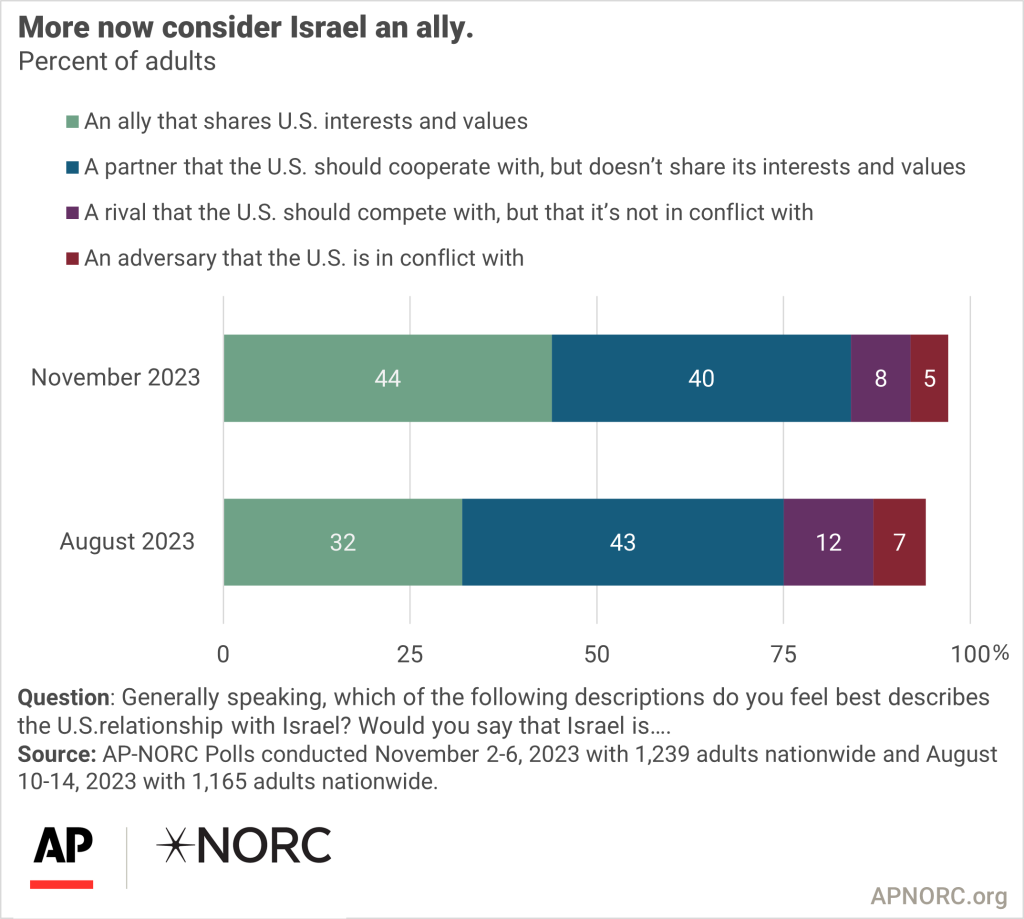
Forty-three percent say that the United States’ current level of support for Israel in the conflict with the Palestinians is about right and 35% feel support to the Palestinians is about right. The public is more likely to think the United States is too supportive of either group since the question was last asked in the AP-NORC Center August poll before the war.
Democrats are more inclined to feel that the United States is not providing adequate support to Palestine in comparison to Israel. Republicans hold the opposite belief with 34% saying the United States is not supportive enough of Israel and only 18% who said the Unites States is not supportive enough of Palestine.
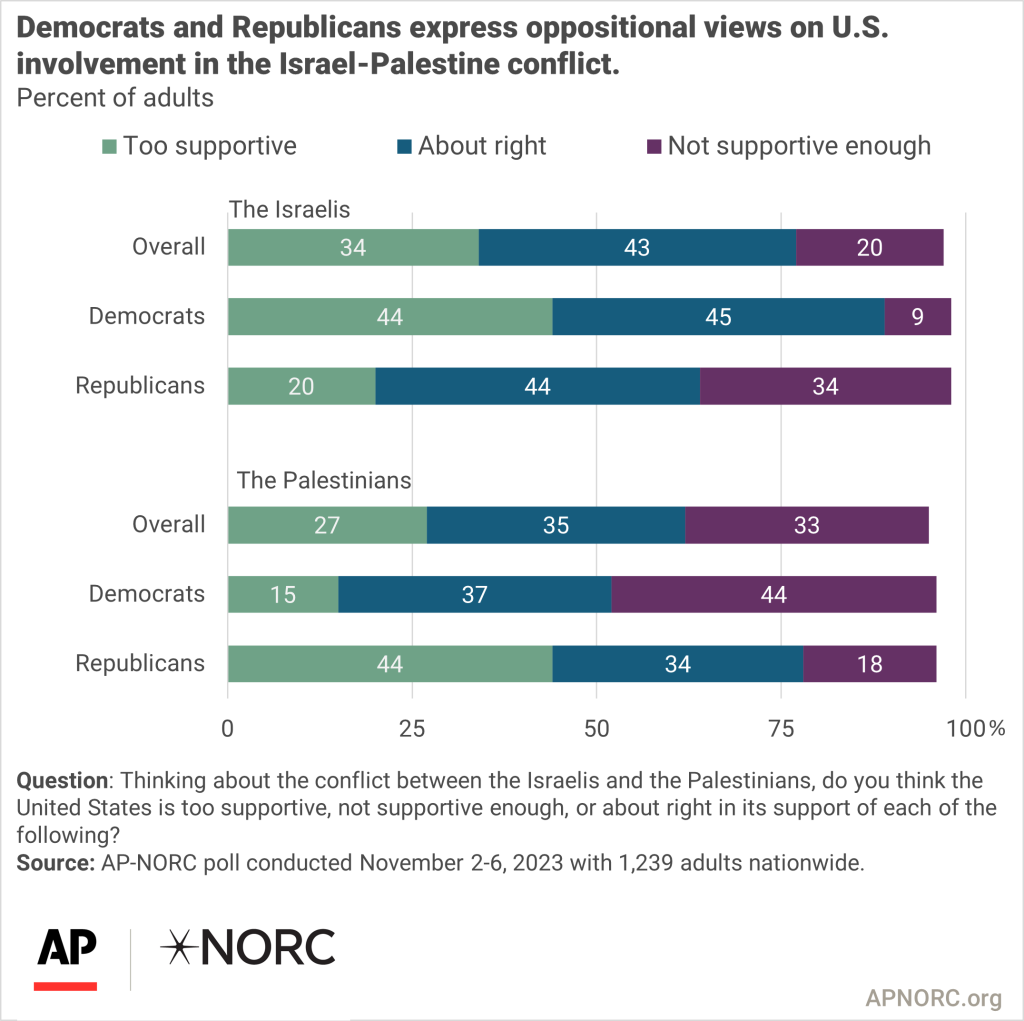
Two thirds of adults feel the Palestinian group Hamas bears a lot of the responsibility for the war whereas 35% say the same about the Israeli government. A third say the Iranian government shares a lot of the responsibility for the conflict and 12% say the United States has a lot of responsibility.
A majority of Republicans and Democrats blame Hamas for the current war. However, Democrats are more likely than Republicans to attribute a lot of blame to the Israeli government (43% vs. 25%).
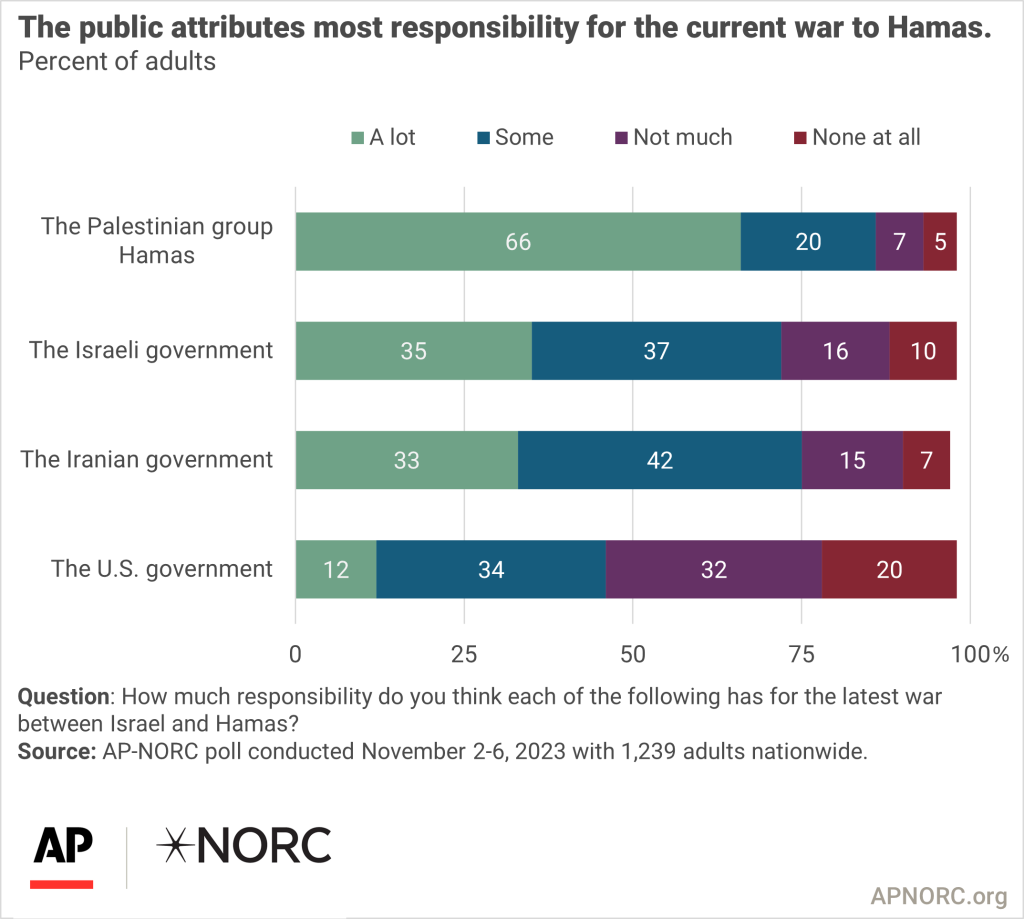
Nevertheless, the public is divided whether the military response from Israel in the Gaza Strip has gone too far (40%) or has been about right (38%). Roughly one fifth say the Israeli military has not gone far enough.
A majority of Democrats feel they have gone too far. About half of Republicans feel Israel’s response has been about right, 32% feel they’ve not gone far enough, and 18% think the response has gone too far.
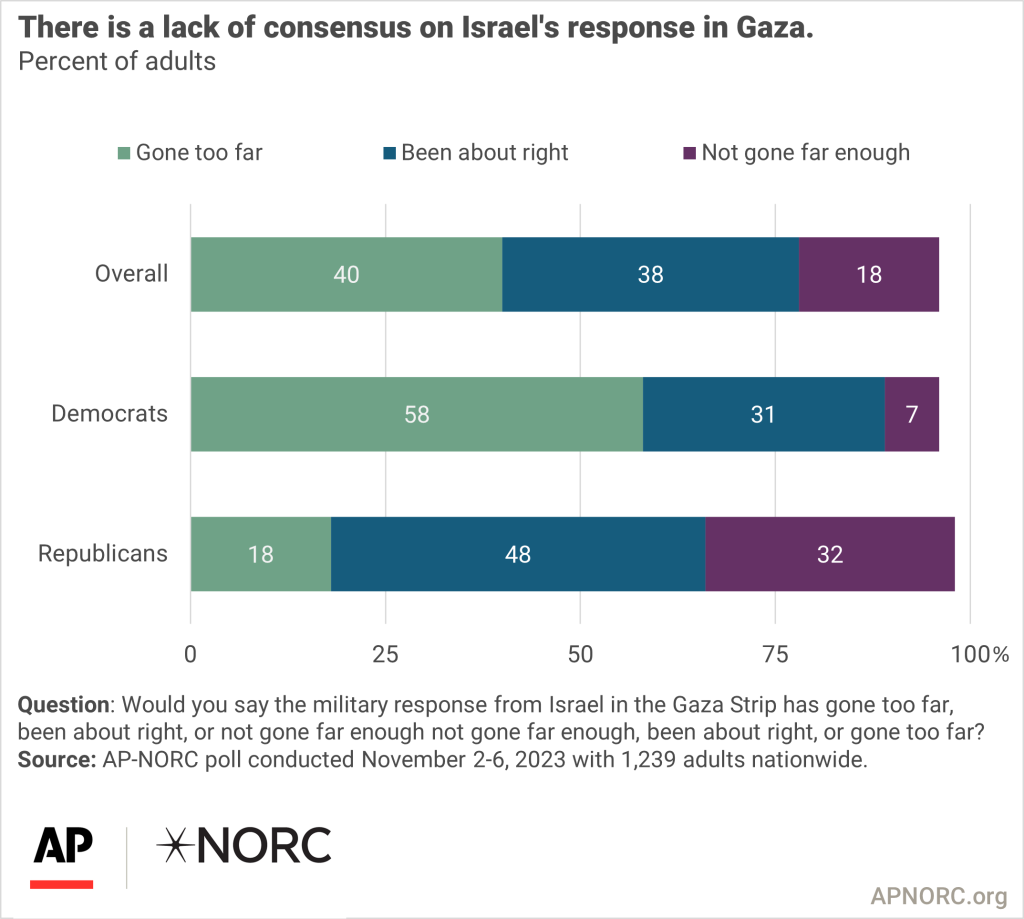
Public sentiment regarding the creation of an independent Palestinian State has shifted compared to August 2023 before the latest war. Initially, 58% of adults neither supported nor opposed the establishment of a Palestinian state. However, in the latest poll, 49% hold this neutral stance, 27% express support for an independent Palestinian state, and 20% remain opposed.
Over the past few months, opposition to an independent Palestinian state has increased slightly among Republicans. Democrats have become slightly more supportive.
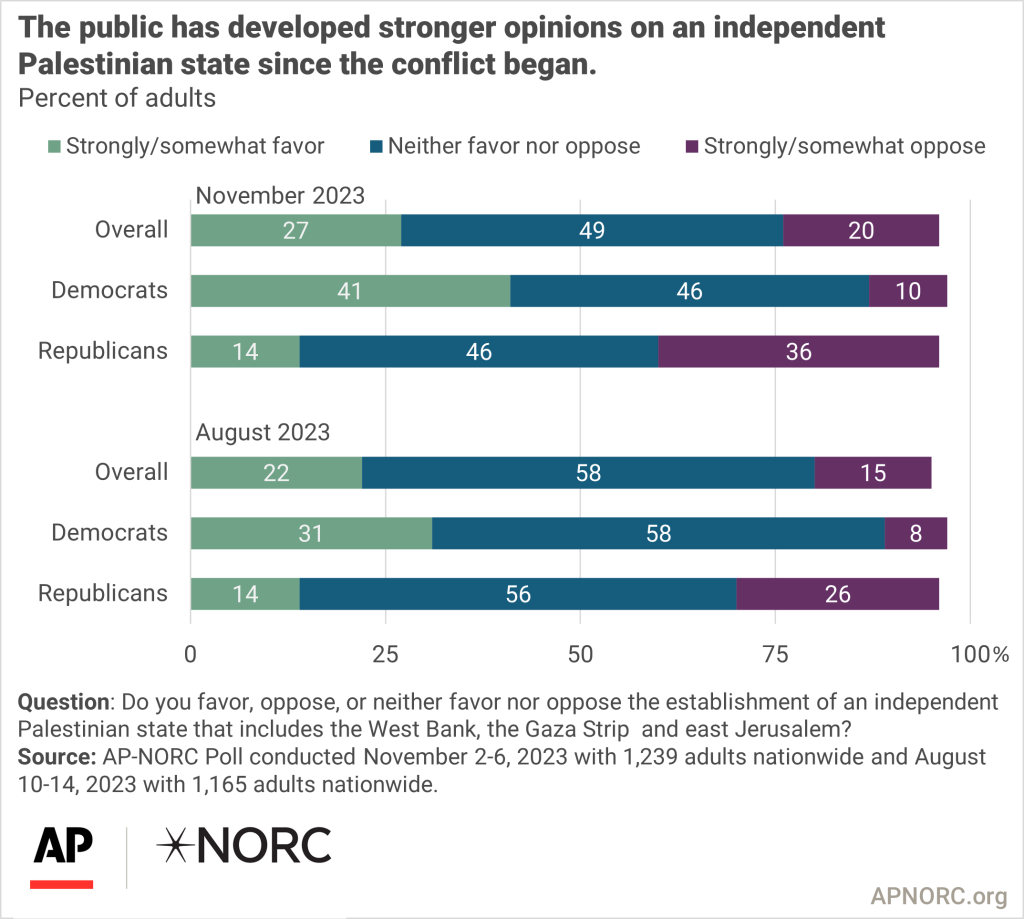
Nearly two thirds of adults say recovering the hostages being held in Gaza by Hamas should be a high priority of the United States and about half say the same about preventing harm or providing humanitarian relief to Palestinian civilians.
Republicans are more likely than Democrats to say providing aid to Israel’s military is a highly important foreign policy goal for the U.S. (48% vs. 30%), whereas Democrats are more likely to prioritize preventing harm to Palestinian civilians (63% vs. 33%), providing humanitarian relief (64% vs. 29%), and recovering hostages (70% vs. 60%).
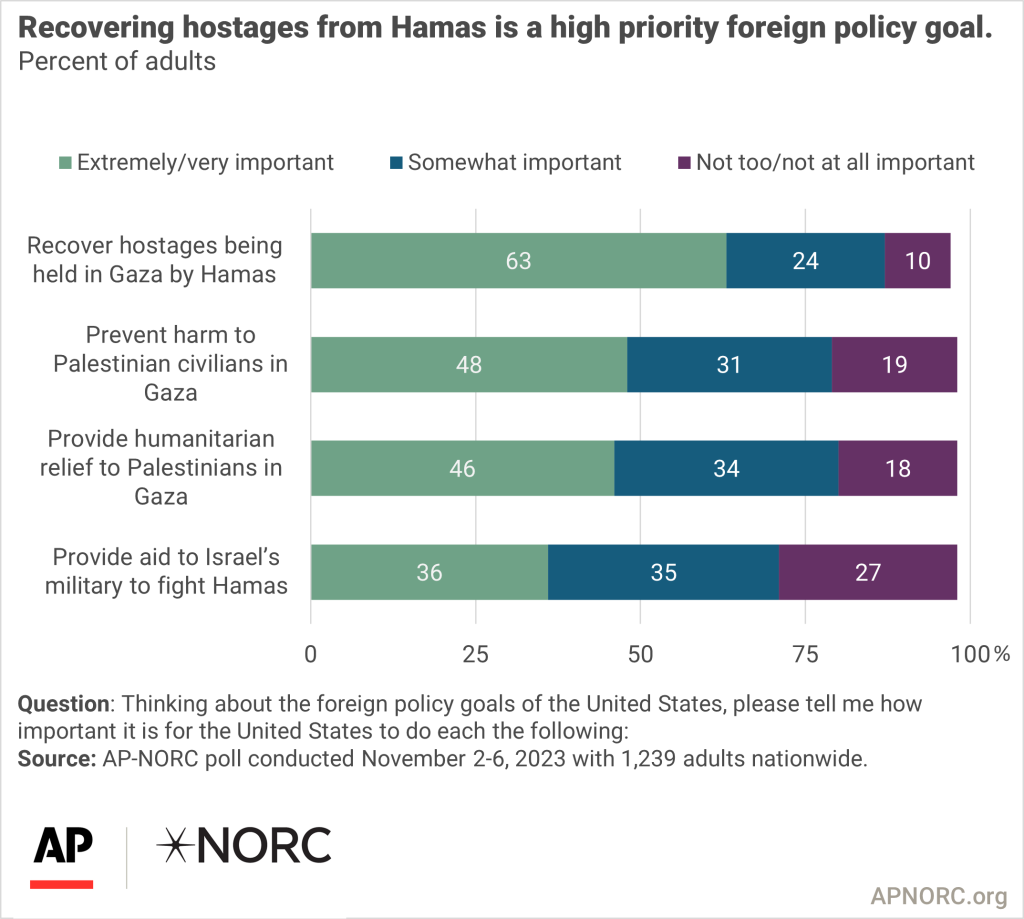
Less than a third of the public think the U.S. should be spending more on the conflict. Thirty-eight percent think U.S. spending on the humanitarian effort for Palestinians in Gaza and aid to Israel is about right. Democrats are more likely to think the United States is spending too little on humanitarian relief than Republicans.
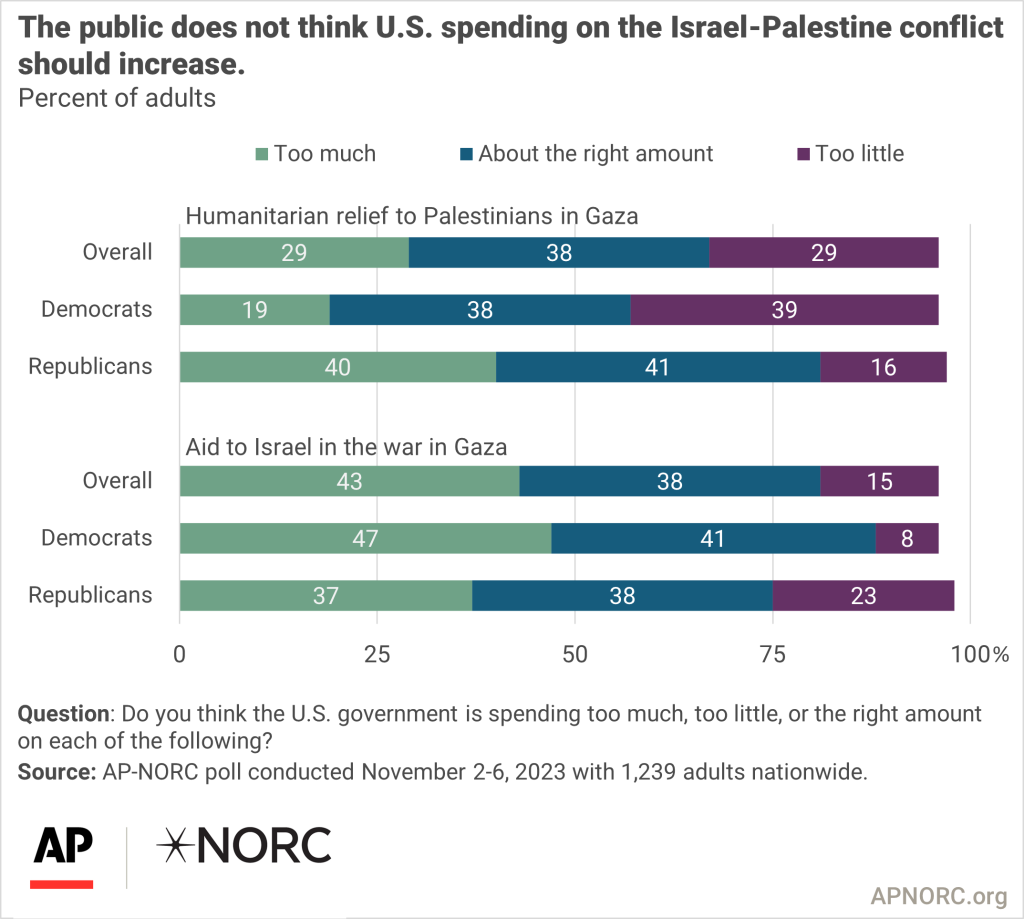
Nearly 9 in 10 are at least moderately concerned that extremist groups based domestically or abroad pose a direct threat to the U.S. Half of adults are highly concerned the conflict will increase prejudice towards Jews living in the U.S. and 43% say the same for Muslims living in the U.S.
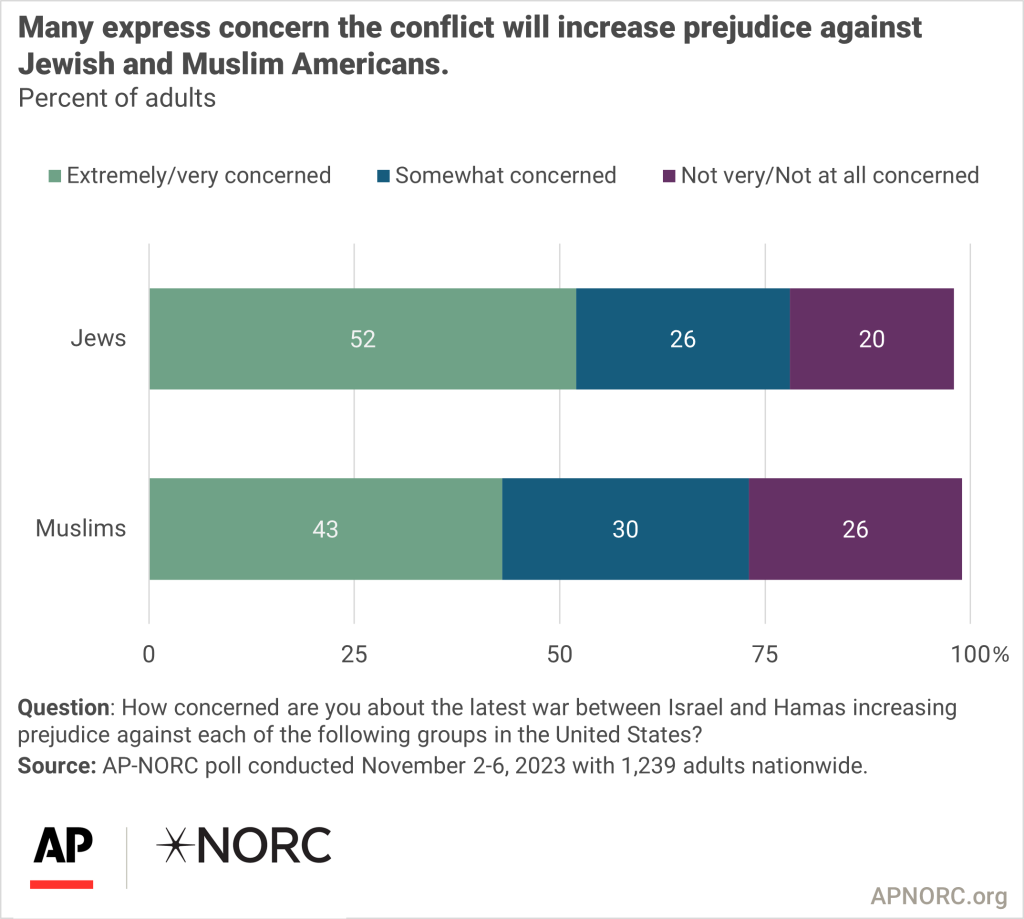
The nationwide poll was conducted November 2-6, 2023 using the AmeriSpeak® Panel, the probability-based panel of NORC at the University of Chicago. Online and telephone interviews using landlines and cell phones were conducted with 1,239 adults. The margin of sampling error is +/- 3.9 percentage points.
- Citation: AP-NORC Center for Public Affairs Research. (November 2023). “As the Israel-Palestine conflict escalates, more see Israel as an ally.” https://apnorc.org/projects/as-the-israel-palestine-conflict-escalates-more-see-israel-as-an-ally/






